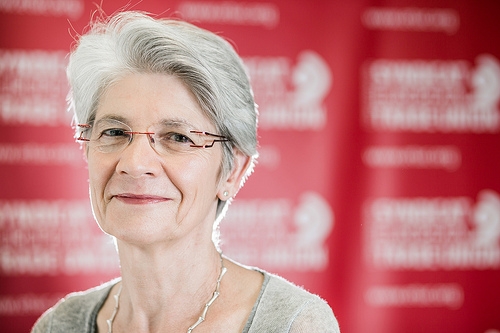
Joint opinion article by Bernadette Ségol, ETUC General Secretary, and Wendel Trio, Director of the Climate Action Network Europe (CAN Europe) published on Euractiv.com
According to Eurobarometer, nine out of ten consider climate change a serious or very serious problem. Meanwhile conflicts in the Ukraine and the Middle East show the fragility of our current energy system. European governments urgently need to find sustainable alternatives.
On the 23 September, world leaders will meet at the specially convened UN Climate Summit being held in New York. It is the moment to catalyse global political action ahead of December 2015, when a new international climate agreement is due to be adopted in Paris. The whole world will be eager to hear what actions European leaders will commit to, but they will have to wait until the next European Council in October to get the final verdict. Only then will we discover how dedicated our leaders really are to putting Europe on a pathway to a safe and just transition to a fair society, and a competitive low-carbon economy.
European Heads of State and Government are due to reach agreement on a new Climate and Energy Framework for 2030 when they meet on the 23-24 October. Up to now, civil society and trade unions have been disappointed by the European Commission’s draft proposals. The proposed targets are below Europe's potential, and the choice of general EU-wide goals avoids specific targets for renewable energy and energy efficiency for each Member State. The urgency of the challenge, and the clear evidence of enormous economic opportunities arising from sustained investment in renewable energy and energy efficiency have been ignored.
Action is needed to ensure economic growth does not involve higher energy consumption, as outlined in the Europe 2020 Strategy, so as to give Europe a competitive advantage and boost energy security. The EU currently relies on imported energy to meet 55% of its needs. Higher investment in green jobs and industries is key to Europe’s economic recovery. While many sectors have been declining, employment in the green economy has grown by around 7% a year.
New reports from the Intergovernmental Panel on Climate Change show the urgent need for action, and the negative economic, social and environmental impacts climate change will have for all countries around the globe. Crucially, they also point to solutions that can limit these impacts by moving to a cleaner and more equitable economic system. We urge European leaders to listen to the science and act in the interests of their people, and the most vulnerable across the globe.
The transition to an energy efficient, renewables-driven Europe is under way, but to continue, we need clear and strong policies that can frame national action up to 2030. The current proposal for a European 27% renewable energy target for 2030 would create uncertainty for investors and could halt the progress made so far. Similarly, the proposed 30% energy savings target would fail to reap the maximum economic benefits, such as job creation.
Moving to a low-carbon economy must go hand-in-hand with creating quality employment. A just transition means integrating workers’ interests into climate policies, including retraining, worker participation and social protection. This will ensure workers’ support for the changes needed. The EU’s policy framework should include a roadmap for a just transition.
European leaders, we need you to make use of the UN Climate Summit by indicating a willingness to go beyond the current levels of climate action on the table. Speak out in favour of dramatically phasing down greenhouse gas emissions in line with what the latest science demands.
Published on Euractiv.com at the following address: http://www.euractiv.com/sections/climate-environment/climate-change-act-people-listen-science-308614
